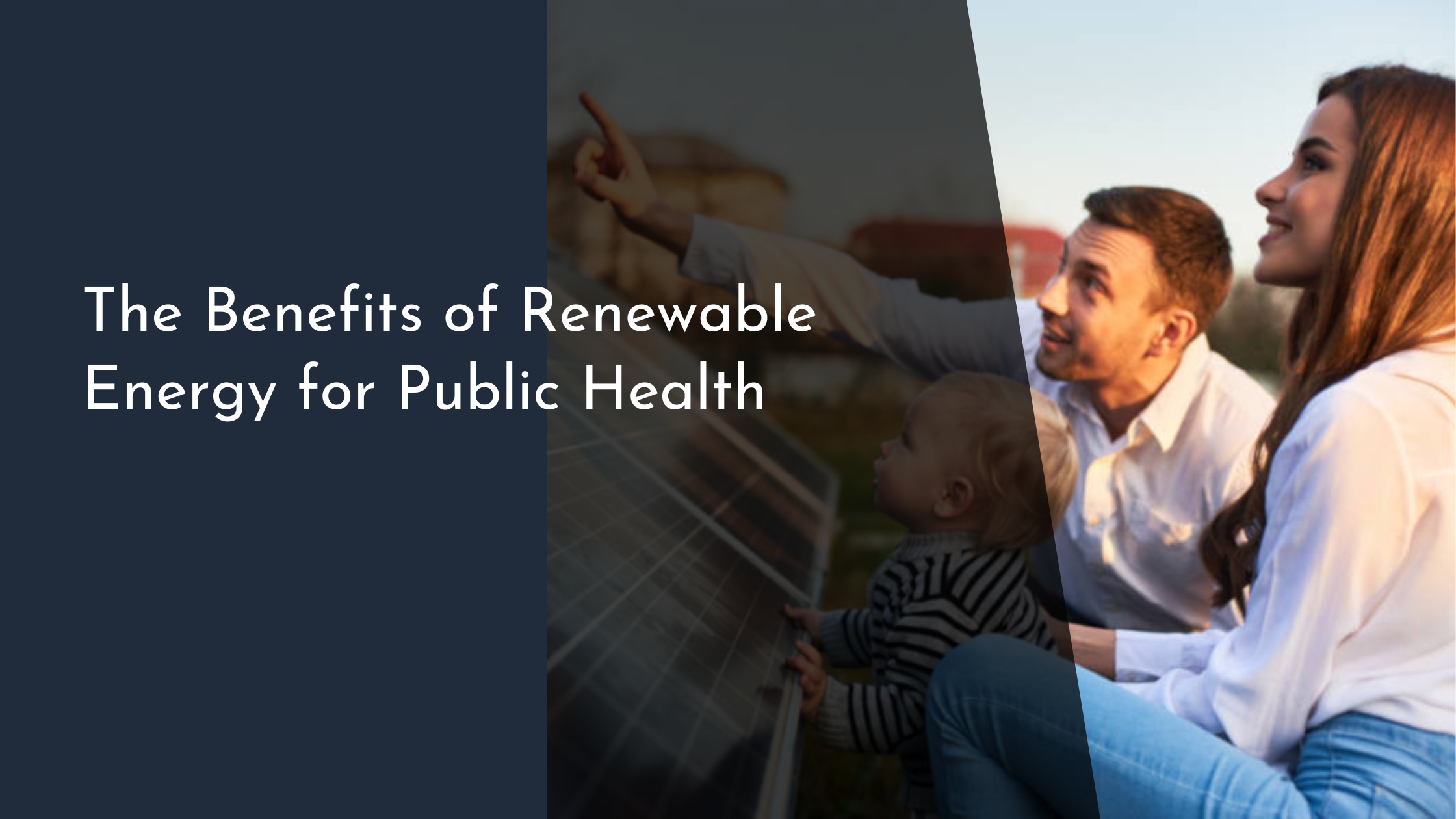The Benefits of Renewable Energy for Public Health
In recent years, the shift towards renewable energy has become a beacon of hope for a healthier planet and its inhabitants. Not only does renewable energy offer a sustainable and eco-friendly alternative to fossil fuels, but it also plays a significant role in enhancing public health. By reducing pollution, promoting cleaner natural resources, and fostering healthier living conditions, renewable energy is transforming the way we live, one community at a time. This article explores the multiple ways in which renewable energy contributes to better public health.
Renewable Energy: A Breath of Fresh Air
The shift from conventional energy sources to renewable energy is akin to taking a breath of fresh air. Unlike fossil fuels, which release harmful pollutants during combustion, renewable energy sources such as wind, solar, and hydroelectric power generate electricity without emitting greenhouse gases or air pollutants. This clean energy transition significantly reduces the prevalence of air pollutants such as sulfur dioxide, nitrogen oxides, and particulate matter, which are major contributors to air quality degradation and respiratory issues.
The reduction in air pollution has a direct and positive impact on public health. Cleaner air means fewer respiratory illnesses, such as asthma and chronic obstructive pulmonary disease (COPD), and a reduction in related healthcare costs. As air quality improves, communities can expect to see a decrease in hospital admissions and premature deaths associated with air pollution. Moreover, renewable energy projects often lead to job creation, resulting in economic growth and improved health outcomes for local populations.
Reducing Pollution and Respiratory Illnesses
One of the most immediate benefits of renewable energy is its capacity to reduce pollution. Burning fossil fuels releases a significant amount of carbon dioxide and other harmful pollutants into the atmosphere, contributing to climate change and smog formation. Renewable energy sources, on the other hand, bypass these detrimental emissions entirely, offering a cleaner, greener alternative. This shift is crucial in urban areas, where traffic and industrial activities contribute heavily to air pollution levels.
Improved air quality means fewer respiratory illnesses among children, the elderly, and those with pre-existing health conditions. By decreasing the amount of harmful pollutants in the air, renewable energy helps reduce the incidence of asthma attacks, bronchitis, and other respiratory ailments. This not only leads to healthier individuals but also lessens the burden on healthcare services, allowing resources to be directed towards preventive and other critical health measures.
Promoting Cleaner Water and Soil Quality
Renewable energy also plays a pivotal role in promoting cleaner water and soil quality. Traditional energy production often involves processes that can contaminate water supplies with heavy metals, chemicals, and other pollutants. These pollutants can have devastating effects on aquatic ecosystems and human health. In contrast, renewable energy, particularly solar and wind power, does not require water for fuel extraction or energy generation, minimizing the risk of water contamination.
Additionally, the impact of renewable energy on soil quality is favorable. Fossil fuel extraction and usage can lead to soil degradation, spills, and contamination, affecting agricultural productivity and food safety. Transitioning to renewables reduces these risks, supporting healthier soil ecosystems. This is particularly beneficial for rural and farming communities, where soil quality directly influences the well-being and economic stability of residents.
Encouraging Healthier Communities and Lifestyles
The rise of renewable energy encourages healthier communities by fostering environments that prioritize sustainability and well-being. As communities embrace renewable energy, they often adopt additional eco-friendly practices, such as increased green spaces, sustainable transportation, and local food production. These lifestyle changes contribute to improved mental and physical health, promoting a sense of community and belonging.
Furthermore, renewable energy projects often involve community participation and education, empowering individuals to take control of their health and environment. Engaging in such initiatives fosters a culture of health and sustainability, encouraging people to make mindful decisions about energy consumption, diet, and daily activities. This collective movement towards healthier living not only benefits individuals but also strengthens community ties, enhancing overall quality of life.
Transitioning to renewable energy is more than just an environmental imperative—it is a public health revolution. By reducing pollution, improving water and soil quality, and fostering healthier communities, renewable energy paves the way for a cleaner, healthier future. As we continue to embrace this vital shift, we can look forward to breathing cleaner air, enjoying more robust ecosystems, and living in communities that prioritize the well-being of their residents. Embracing renewable energy is not just an option; it’s a vital step toward a healthier planet and population.

